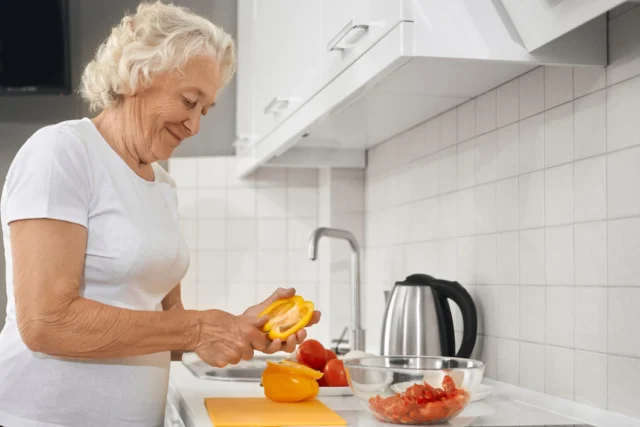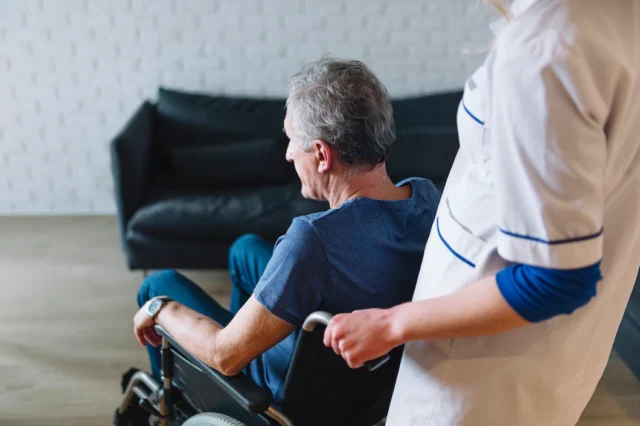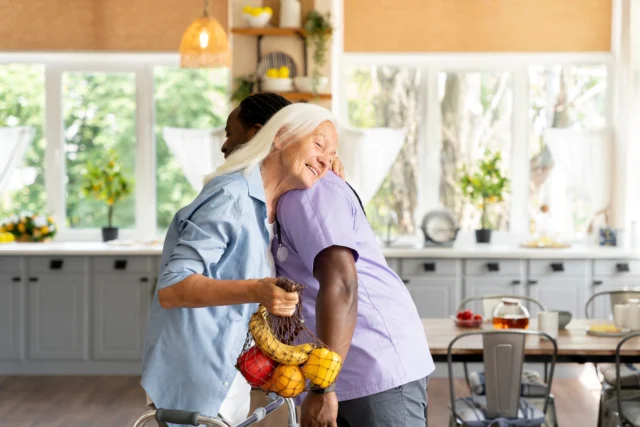When it comes to taking care of our elderly relatives, many people face a tough decision at some point: do they need more help than we can provide them, and if so, is it time to bring in professional caregivers? It can be quite difficult to determine when the time is right, but there are truly a few things to keep in mind. This is one of those articles that will help you try and make the best decision for your elderly relative’s care. It will discuss the signs that your elderly relative may need additional care, potential options for providing that care, and how to choose the best option for them. Also, it will look at the financial impact of bringing in professional care and how to make sure your elderly relative is comfortable with the decision.
Health

First, consider their overall health and level of functioning. Have there been changes in their physical or mental health that make it difficult to get around, complete their daily tasks, and stay safe? Observe how well they take care of themselves, including personal hygiene and nutrition. Are they able to communicate their needs effectively? These are all important indicators of whether they need help with daily tasks or require more intensive medical care.
You can check out this expert dentist in Leominster MA to look for a reputable professionals who can take care of your oral health!
When it comes to health, consider both their physical and mental health. If your relative has cognitive decline, it could indicate the need for additional care. It is also important to consider end-of-life arrangements, such as whether they have an advance directive in place. Also, it is important to assess their living environment for potential hazards.
Are They Safe?

The very first thing to consider is whether your relative is safe. Are they able to bathe and dress? Can they cook and shop for groceries? Are they keeping up with their medication schedule? If your relative isn’t able to take care of themselves safely, it’s time to consider bringing in additional help. Whilst it’s important to consider the financial implications of providing additional care, it’s much more important to make sure they are safe. When it comes to safety, there’s no price tag. Your loved one’s health and well-being are invaluable. The last thing you will ever want is for them to be in danger. Whatever you decide, ensure it is the best decision for their safety.
Safety should be your top priority when it comes to considering whether your elderly relative needs additional care. It should not be overlooked or ignored. Crucially, make sure whoever you decide to bring in is a trusted individual with the proper credentials and training. The last thing you should want to find is that your elderly relative has fallen victim to a scam or negligent care.
Are They Active?

Another thing to think about is how independent your relative is. Do they enjoy engaging in activities, or do they prefer staying at home? If your relative is relatively independent and enjoys being active, they may not need as much help as someone who is less active and prefers staying at home. That being said, even if your relative is active, they still may need help with certain tasks, like transportation and meal preparation. Of course, it all depends on the individual and what their needs are. Whenever possible, it’s important to get your loved one involved in the decision-making process. True to their nature, elderly people do not always want to be a burden on their families and may opt for independence if given the choice. Whatever the case may be, it’s important to involve the relative in their own care.
What Is Your Schedule?

It’s also important to consider your schedule and capabilities. Can you handle all the caregiving duties on your own? Or would it be better to bring in additional help so you can take a break? If you’re unable to provide all the care that your relative needs, it’s time to consider outside help. Then you can decide what your role will be and how much help you’re able to provide. Your schedule and capabilities should also be taken into account when choosing the type of care to bring in.
Financial Impact

You should also consider the financial impact of bringing in additional care. If your relative can cover the costs of care, then you can focus on finding the best option for them. If not, you’ll need to consider other ways to pay for care, such as long-term care insurance or government funding programs. It’s important to understand the costs associated with different types of care, so you can make an informed decision. What the best option is for your elderly relative will depend on their individual needs and circumstances. Never forget to consider the financial impact of bringing in additional care. That’s because it will ultimately determine what type of care you can provide and how much it will cost.
For finances, consider the following:
– Long-term care insurance
– Government funding programs
– Out-of-pocket expenses
Decide Whether Additional Care Is Necessary

At the end of the day, it’s important to decide whether your elderly relative needs additional care. Consider all the factors discussed above and make sure you involve your relative in the decision-making process. With so much to think about, it can be overwhelming to make a decision. Don’t forget to keep the focus on what’s best for your loved one and their safety. Additional care is an important decision and should not be taken lightly. They may have questions like what is memory care or how to access government-funded services. Do your research and take the time to get all the information you need before making a decision. Take your time and make sure you have all the information before making a decision. This will help ensure your relative is safe and secure.
Conclusion
Ultimately, only you can decide if your elderly relative needs additional care. Yet, by considering these things, you’ll be able to make an informed decision that’s best for both you and your loved one. Your elderly relative’s health, safety, and level of independence are paramount. Don’t forget to consider the financial impact when deciding on the type of care to bring in. With the right care and support, your elderly relative can continue to enjoy their life with dignity and independence.









